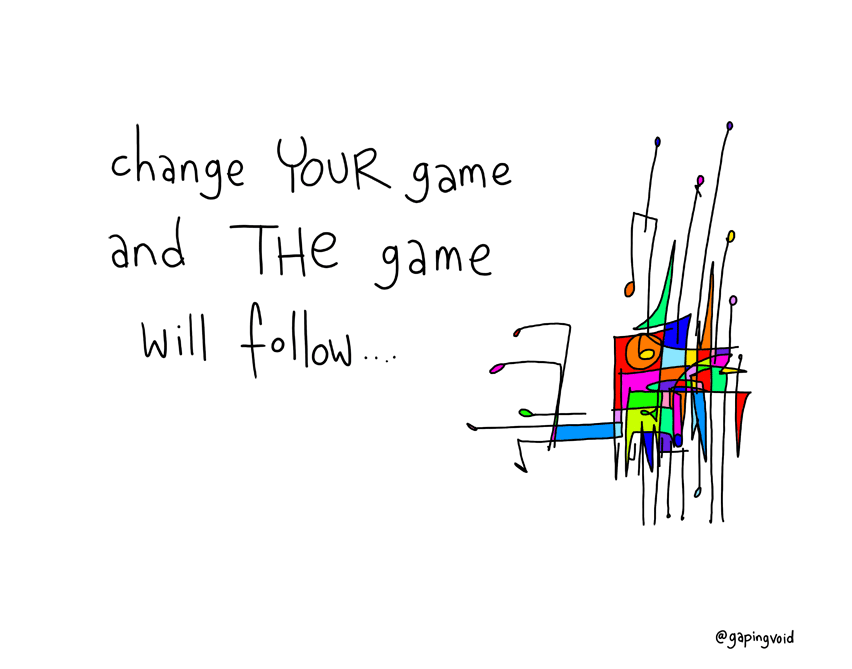I’ve been having a tough time with an executive management team. They’ve developed a behavior pattern of agreeing to every action step in our meetings, then completing none by our next meeting. I’ve tried many things:
- changing the time span of the tasks
- email reminders
- sending agenda earlier
- not having any action steps
- inviting administrative staff to support the managers with tasks
Taking a break from this, I decided to read some Wittgenstein and found this passage in Remarks on the Foundation of Mathematics
“Let us suppose … that the game is such that whoever begins can always win by a particular simple trick. But this had not been realized; – so it is a game. Now someone draws our attention to it; – and it stops being a game. What turn can I give this to make it clear to myself? I want to say: “and it stops being a game” – not: “and we now see that it wasn’t a game.” That means … the other man did not draw our attention to anything; he taught us a different game in place of our own. – But how can the new game have made the old one obsolete? – We now see something different and can no longer naively go on playing. On the one hand, the game consisted of our actions (our play) on the board; and these actions I could perform as well now as before. But on the other hand, it was essential to the game that I blindly tried to win; and not I can no longer do that.” (104)
The executive team and I are playing a game. Consulting, work, and life can be seen as a co-constructed game where both parties learn – adjust – and evolve the rules based on the actions of each other. The rules are not as defined as we would like to believe.
We have fallen into a pattern with the executive team, and both have begun to recognize that pattern as a rule. The more we support and try to work within that rule pattern, the more it becomes reinforced, believed, and practiced.
When a person comes to know a pattern about their behavior, they are no longer bound to it and can become free to disobey it.
The above leads me to stop using the word ‘culture’ and use ‘current behavior’ within workplaces. Behaviors can be explored, disobeyed, and changed.
With the executive team thinking about the Wittgenstein passage, it appears my turn to draw our collective attention to the challenge and begin a different game to take the place of what we are doing.


